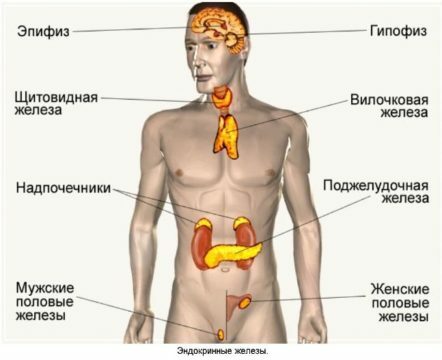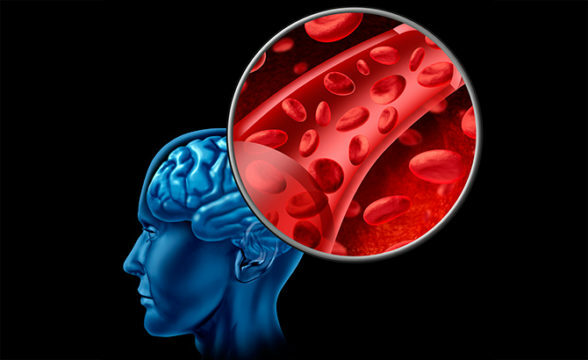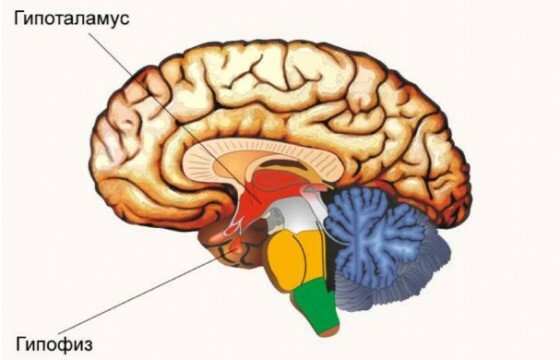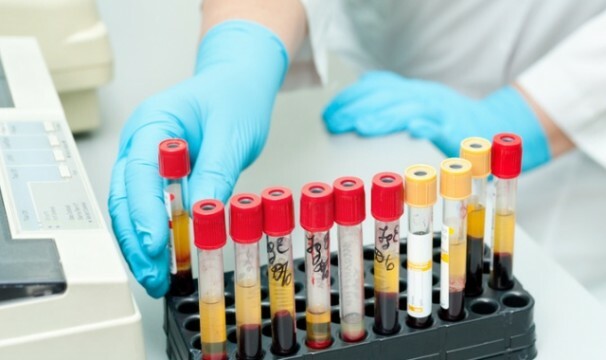Specialist in medicine, engaged in hormone testing and treatment of human comorbidity is called an endocrinologist. His duties include the diagnosis and therapy of various glitches in the work of endocrine glands. The endocrinologist also develops measures for the prevention of hormonal disorders for each individual patient.
Features of endocrinology
Iron of internal secretion is pretty much. They include, for example, the thyroid gland, the adrenal glands, the hypothalamus and others. Each of them produces its hormone( hormones).
Few people know, but these substances can produce and some organs of the human body, not related to the endocrine glands. For example, the brain, heart, liver.
What kind of doctors are involved in hormones? Depending on the age and sex of the patient, he should consult a doctor with a certain specialization.
Children's endocrinologists treat children, adolescents, they solve the following tasks:
- correction for growth disorders;
- therapy of pathologies of sexual development;
- treatment of diabetes;
- fighting overweight;
- Elimination of teenage skin problems.
Women with hormonal failures should contact the endocrinologist-gynecologist. This specialist treats infertility, menopause, mastopathy, delayed periods, etc.
For brain tumors of any etiology, gigantism and acromegaly, diseases of the adrenal glands, a neuroendocrinologist should be engaged in the patient. Various disorders in the thyroid gland are treated by a thyroidologist. In addition to these specialists are engaged in problems with the endocrine glands of genetics, endocrinologists-surgeons, diabetologists.
Basic glands and their appointment
Endocrine glands have no outlet ducts, they release active substances directly into the blood. They directly regulate metabolic and other processes of vital activity in the body:
- Pituitary. It is located at the base of the brain. It produces substances that control the work of other endocrine glands and affect the size of the internal organs and the growth of bones.
- Thymus. At the child this organ has the big sizes. During puberty and throughout life, it gradually decreases. The hormone thymosin, which is responsible for the maturation of immunity cells, is secreted.
- Thyroid gland. It is located on the neck, produces substances that control metabolic processes.
- Parathyroid glands. The hormone responsible for the rate of calcium and phosphorus metabolism is produced. Works in combination with thyroid.
- Pancreas. It is directly involved in digestion, throwing its juice into the intestines. In addition, it produces the most important hormone insulin, which controls the level of glucose in the blood.
- Adrenal glands. Responsible for the production of hormones that affect many processes in the human body and the work of nerve cells.
- Sex glands. Affect the reproductive function, secreting substances that control the development of secondary sexual characteristics.
In various religious trends, the mystical role is attributed to the pineal body( epiphysis).It is a small gland located in the middle brain. However, at the moment it is not sufficiently studied.
Neuroendocrinologist
Most neuroendocrine diseases are associated with pathological processes occurring in the hypothalamic-pituitary region. The most common type of lesion is adenoma. In fact - it is a benign tumor, in rare cases, the disease takes a malignant form. Neuroendocrinologist deals with the treatment of pituitary adenomas and pathologies, which they provoke. In this case, there may be observed, as an increased production of hormones of this gland, and a sharp decrease in them.
The neuroendocrinologist should be treated with acromegaly, prolactinoma, Izenko-Cushing's disease. Usually, these diseases are accompanied by the following symptoms:
- decreased libido;
- menstrual cycle disorder;
- obesity;
- strong weakness in the muscles;
- proliferation of cartilaginous tissue.
After the treatment of a patient with similar symptoms, the neuroendocrinologist will send him for examination to determine the level of hormones produced by the pituitary gland and to identify possible pathological enlargement of the gland. Depending on the results of the tests, the doctor prescribes treatment. As a rule, it consists in drug reduction to the level of the hormones of the pituitary gland. In the presence of an adenoma and a significant proliferation of the gland, surgical intervention may be required.
Thyroidologist
This specialist is engaged in the treatment of thyroid gland. This gland of internal secretion, is responsible for many processes occurring in the human body. It produces specific hormones that contain iodine. If the thyroid gland fails, serious health problems can begin. First of all, there is a strong decrease in immunity.

In hypothyroidism, the patient suffers from obesity, skin problems( peeling, puffiness), decreased mental activity. The person becomes slow, he is tortured by constipation. Hyperteriosis is accompanied by increased sweating, dilated eyeballs, insomnia, irritability, high blood pressure, tachycardia, increased appetite.
All these symptoms should cause the patient to seek help from a tiradeologist. Usually the therapist directs this specialist, but if you suspect a pathology of the thyroid gland, you can visit the thyroidologist yourself. He will appoint an ultrasound of the body and blood donation to hormones. As a rule, the treatment consists of a pharmacological adjustment of the thyroid gland throughout life. Unfortunately, thyroiditis can not be completely cured. Operative interventions are rarely resorted to, with a significant increase in thyroid gland.
Gynecologist-endocrinologist
This is a specialist in the diagnosis and treatment of any hormonal failure in the body of a woman. He checks the work of the ovaries, the ratio in the blood of a patient of progesterone, estrogen and testosterone.
A visit to a gynecologist-endocrinologist should be mandatory if, for example, a teenage girl has a delay in menstruation. Often the first hormonal failure in women occurs precisely in childhood. Therefore, parents should closely monitor the health of the child in order to timely eliminate possible abnormalities in the work of the ovaries at an early stage.
The basis for the treatment of a woman to a gynecologist-endocrinologist is the following symptoms:
- discomfort during sexual intercourse in the lower abdomen;
- burning sensation when urinating;
- discharge with an unpleasant odor.
In addition to the gynecological examination, the doctor will appoint the patient to donate blood for hormones and ultrasound examination of the ovaries. In addition, he will make a menstrual calendar, check the growth and weight of the patient to confirm the diagnosis. Treatment of ovarian dysfunctions can be carried out conservatively or operatively. Surgical intervention is required when the pathological process is neglected. In the early stage, to significantly improve the state of female health, it is enough to adjust the hormonal balance.
Forecast
In most cases, with a timely visit to the doctor, with the pathologies of the hormonal system will manage to cope, after a simple drug treatment course. In some situations, endocrine disorders appear against the background of other serious pathologies. Therefore, before prescribing therapy, the doctor must necessarily examine the patient for underlying diseases that can trigger hormonal changes in the background.
Without treatment of the revealed disturbances in the work of other organs and systems, it will not be possible to restore the normal secretion of the endocrine glands. For example, if the decrease in androgenic hormones was due to a venereal disease that caused inflammation of the genitals, then, first of all, it is necessary to direct the forces for healing precisely from this sore. As a rule, the doctor treats the infection with antibacterial medicines. A prescription of various hormonal drugs will be carried out as needed. Often, the elimination of the underlying ailment, allows you to restore the normal operation of the endocrine glands, without resorting to additional treatment.






